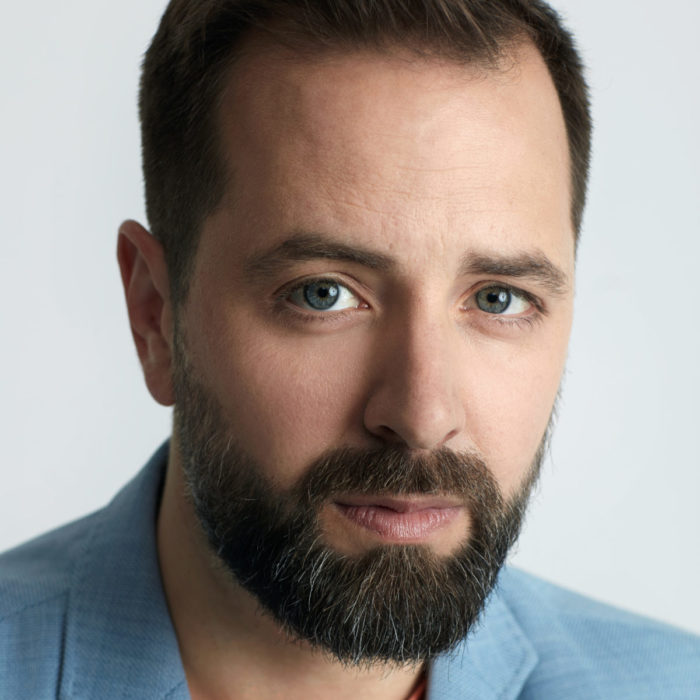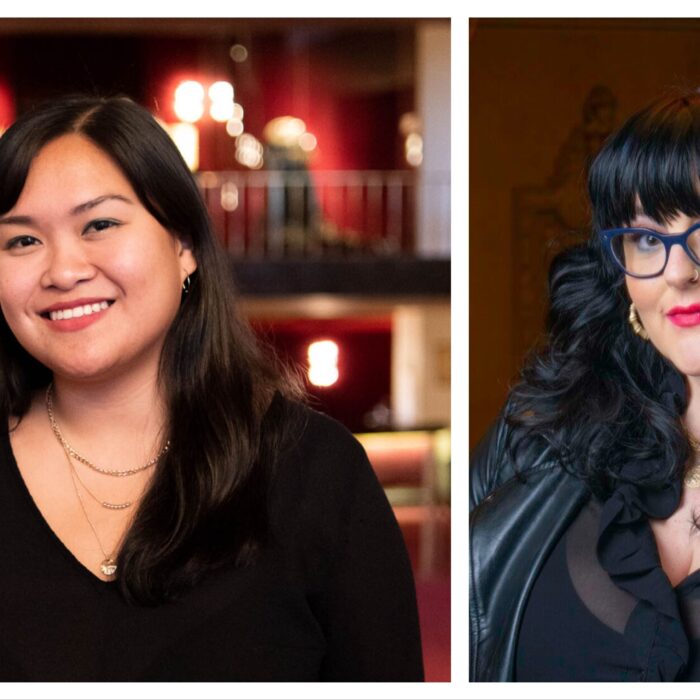
Forging A New Operatic Culture & Identity – Author & Performing Arts Manager Paolo Petrocelli on the Development of Opera in MENA
By David SalazarWhen the world of opera speaks of its development into the future, that evolution usually centers on conversations taking place in traditional opera settings, including Europe and North America.
But the Middle East has not often been a major focal point of that conversation.
Paolo Petrocelli, author of “The Evolution of Opera Theatre in the Middle East and North Africa” believes firmly that this is a mistake.
“The evolution of opera in the Middle East and Africa is closely related to so many different cultural, sociological, political and economic factors. Because of the complexity of the geopolitical landscape and the fragmentation of the cultural system in the Arab world, no complete study has ever been conducted about the opera system in the Region,” Petrocelli, who is also a performing arts manager, university professor, musicologist and violinist, told OperaWire. “As a performing arts manager and a scholar, I found it extremely challenging to approach the topic with a very open mind and a solid research methodology. The final result of my work is the very first structured and complete research work undertaken on opera theatres across the entire Middle East and North Africa.”
In creating the book, Petrocelli decided to break down the region and analyze opera’s history and future in each individual country. Everything from Egypt’s extensive history with opera to even the minimal exposure to opera in countries like Eritrea is explored.
“The entire study journey was so revelatory to me,” Petrocelli noted. “It’s just incredible to discover that all the literature available (and I mean all) is just ignoring so many truths that have been hidden for centuries!”
Audiences are bound to gain fascinating insight into how some countries were heavily involved in the opera world for a long time before eventually losing touch, while more current operatic powerhouses in the region started their ascent only in the past decade.
Early on, opera companies in the area were strongly influenced by European models, specifically those generated by France and Italy. But as political circumstances changed throughout the region, so did the relationship with opera.
“Nowadays, opera in the majority of Middle Eastern and North African (MENA) countries is far from western European standards due to lack of resources and something expertise,” Petrocelli noted.
Understanding this shifting relationship was made all the more difficult by the lack of practical resources, which Petrocelli noted were of “little attention to scholars,” and when they did exist, they were in Arabic.
His main source of communication came from Directors throughout the region, and it’s from those companies and countries where Petrocelli is best able to dive deeper into the opera culture. For example, he had an entire interview with Umberto Fanni, the general director of the Royal Opera House Muscat.
Substantiated further in the book, he notes that while some of the historical context goes missing, there is a now clearer view of what is coming for opera throughout the region.
“There is a kind of cultural revolution in the Gulf Region and Middle East and there is a new understanding of operatic language,” he stated. “They are starting to see opera as a language that can connect people. A language that can help people express and develop culture and their own history.”
That starts with the creation of an operatic identity.
Operatic Identity Through Architecture & Talent
This search for identity has started in most countries with the erection of new “opera houses” or “large performing arts centers.”
In 2018, the Cité de la Culture opened in Tunis, a new richly-equipped complex of nine hectares, incorporating a modern art museum, a 1,800-seat opera house, two theaters, a cinema, a library, and studios to host festivals.
Egypt recently announced the creation of a new opera house, which is set to be the largest in the region. The project is a part of the construction of the New Administrative Capital and is a top priority for the government’s sustainable development plan 2030.
“I believe that the economic recovery after COVID in the MENA Region will be supported also by a new phase of development of the cultural sector and the growth of many of these performing arts centers and opera houses,” Petrocelli noted. “Big cities need to have this kind of venue. It’s about achieving international cultural standards while generating further social development.”
It isn’t a new trend, however, and in several countries, the existence of a major cultural center has not translated into a substantial opera program.
“Many of these countries did not have a clear strategy for developing the arts and culture in their own country,” he added. “So they struggled to attract audience and convince local communities that they actually belonged to the people. They struggled to sell tickets and present certain shows unrelated to the local culture.”
Then comes the development of local talent, which is happening across a number of different avenues.
On one hand, you have opera companies like the Royal Opera House Muscat, run by Fanni, which is collaborating with major opera organizations in Europe and beyond to bring the top stars and productions. The hope behind this model is two-fold.
“You not only attract local audiences to the top talent and show them what is possible, but you also foment an environment where local talent can learn from the international artists and build up your own local resources, which is what Oman is doing,” Petrocelli stated. “The Royal Opera House Oman’s greatest strength has been importing top talent from abroad and the highest quality productions to present opera in a manner that is representative of the best the art form has to offer around the world.”
However, Petrocelli noted that this plan isn’t without its challenges.
“Oman’s great challenge, after 10 years of renting international productions, is that they have to focus more on productions that resonate with local culture and identity and becoming a production center themselves.”
Forging Identity Through Arabic Opera
That brings us to perhaps the most critical aspect of forging an operatic identity in the region—the presentation of original Arabic operas, which to this point in history are minimal at best.
“When I mean Arabic operas, I don’t mean translations of European operas,” Petrocelli emphasized. “We’re talking about people throughout the region developing operas in Arab with new vocal techniques that adapt bel canto style to Arabic language.”
This is driving an effort to develop composers and directors throughout the region as well as Middle Eastern opera singers “who have had the most limited access to top professional education in operatic singing.”
“There is so much fantastic literature from the Arabic world and material to us. There are new librettos being written that are going to be adapted as new opera productions,” he noted adding that he doesn’t anticipate these works to be anything close to what Western culture understands opera to be. “My feeling is that it’s not going to be a traditional approach. These countries are also very advanced in terms of innovation and technology. All of these new opera productions will use a lot of digital technology, perhaps more than what is being used in Europe.”
This trend was best seen with “Antar and Alba,” an opera by composer Maroun Rahi and librettist Antoine Maalouf, which premiered at Opera Lebanon in 2016. The opera tells an inter-racial love story of two tribes in constant conflict that are only able to find peace when the lovers reveal their feelings. The opera focuses on themes of racism and discrimination, offering a hopeful ending in lieu of opera’s propensity for tragic melodrama.
The success of the new opera sent shockwaves through the region, most notably in one of countries that had shunned the artform for its entire history—Saudi Arabia.
Saudi Arabia
When asked to pick one country where Petrocelli sees opera having a long-term positive outlook in the region, Saudi Arabia is his go-to.
It’s a major contrast from what he delineates in the book.
Back in the 1970s, King Fahd had created the Riyadh Opera House, which would have been “the finest concert hall in all of the Middle East.”
But the $140 million project never opened due to objections from religious scholars and clergy who could not fathom having both men and women in the audience or having female artists performing without veils. As such, opera was banned altogether from the country “essentially forever.”
But that’s all changed in recent years with the country engaging in a post-oil economic project entitled “Saudi Vision 2030.” While the project does not specifically outline opera as a part of its cultural expansion, Petrocelli believes that it is inevitable.
“The Saudis have seen what is happening in the region and they are approaching the cultural development in a different manner,” Petrocelli noted. “In fact, they are focusing on education. They are developing the overall strategy for creating music academies, performing arts academies, and conservatories from scratch.
“Saudi Arabia is one of the countries that wants to promote Arabic culture and, as they try to establish a cultural strategy, they will be able to do a lot.
They also realize that they can create a whole new sector of job opportunities and it is likely that Saudis will train a lot of local professionals.”
However, he does note that the majority of the operatic output in Saudi Arabia is likely to be more oriented to new regional compositions, than European masterpieces.
International Collaborations
He also noted that just because Saudi Arabia is stepping into the opera arena in the region, it doesn’t mean that all the countries will suddenly find ways to collaborate with one another.
“Some opera houses already cooperate with each other. There are open communications between some of these institutions to join forces and work together on major Arabic co-productions—something they will have to experiment with sooner or later,” Petrocelli added. “Obviously, it’s also about politics and diplomacy, but hopefully culture will help these countries to collaborate more and more, starting with opera—especially Arabic opera. We have to be clear. These countries are committed to creating their own individual national strategy for promoting their culture.”
For example, he noted that Kuwait’s strategy is to create more Arabic productions, while Qatar is more intent on small seasons centered around the national orchestra.
That said, Petrocelli is optimistic that a developed opera scene in the Middle East and North Africa will present an opportunity with which other countries from Europe, North and South America, and Asia can engage.
“In the future, opera centers in Europe and the U.S. will be able to rent these new Arabic productions. I believe that in certain cities and countries, Arabic communities will like to attend a show that finally speaks of their own culture. It will take some time, but I am sure that the new phase of development of the opera in the MENA region will promote further cultural integration and enrichment within the arts globally.”


